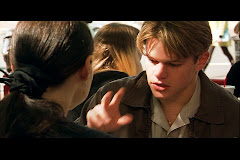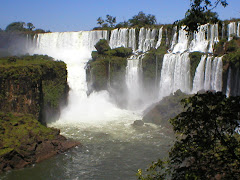Over the past few posts I have been writing about what feels a lot like a transformative path. As a part of that process I have been becoming aware of my senses - especially my emotions - in a whole way. It's not that I didn't have emotions; I just did not experience them this way before.
We all have emotions – they are part of our basic
programming for survival. However as with all other things, the emerging ego
seizes them for it’s own purpose. Thus the three survival instincts,
survival/security, affection/esteem, and power/control, become self-referential
in service to the ego. That is, instead of emotions that give us information
about safety or security, they become emotions that protect the “well-being” of
the ego and turn narcissistic. Emotions like love and affection, which are part
of our DNA as relational beings, become schemes for the ego to gain praise and
further aggrandizement. No wonder why we don't trust our emotions!
 Psychologists tell us that by the age of five
we have learned 90% of our total vocabulary. But while we were learning those concepts
about the world, most of our world was bigger, faster, and smarter than we were as little children. Therefore, as the ego is forming, it begins working on how to protect itself and how to get what it wants for its self-perception, all of which are based on what Alfred Adler called our perception of “inferiority” as little ones. By the age of four or five, when the ego
differentiation is completed, and most of our beliefs about the world (and our
place in that world) have been formed, the ego has seized control of our
emotional tools and turned them into self-referential and self-centered
gimmicks. Innately, we know that this is wrong and for the bulk of us who have
not done the inner work of clearing out that narcissistic tendency, we begin
distrusting our full set of emotions. We have emotions but they are off-kilter.
Psychologists tell us that by the age of five
we have learned 90% of our total vocabulary. But while we were learning those concepts
about the world, most of our world was bigger, faster, and smarter than we were as little children. Therefore, as the ego is forming, it begins working on how to protect itself and how to get what it wants for its self-perception, all of which are based on what Alfred Adler called our perception of “inferiority” as little ones. By the age of four or five, when the ego
differentiation is completed, and most of our beliefs about the world (and our
place in that world) have been formed, the ego has seized control of our
emotional tools and turned them into self-referential and self-centered
gimmicks. Innately, we know that this is wrong and for the bulk of us who have
not done the inner work of clearing out that narcissistic tendency, we begin
distrusting our full set of emotions. We have emotions but they are off-kilter.
But here’s the clincher: when the ego is finally killed off – whether
through the dark night of the soul or through some deep wound to its
self-constructed idolatry – we break through that superficial level of
emotional responses back into the real true level of emotion. In this deeper,
pure level of emotionality, unencumbered by the need for praise, or coddling,
or ego-stroking, emotions are true barometers of the world and directional
indicators for effective living. What’s more, we no longer have to “obey” the
emotional information (as the tyrannical ego demanded) but can take it in as
part of what we need to be listening to as we make our way through the present
moment.
That is the part I have been trying to find words for: that
breakthrough to a deeper level. And as an added benefit, with the death of the ego,
intellect is freed from it’s demand to show up as the smartest kid in the room
and can be in service to others. Freed from ego's tyranny, my emotions and my intellect can be used as they are meant to be. My
inner witness just needs to keep ego out of the room and both intellect and
emotion can inform my whole self in right action, right work, … It may be the beginning of what the Buddha called "the eightfold
path."





.jpg)


